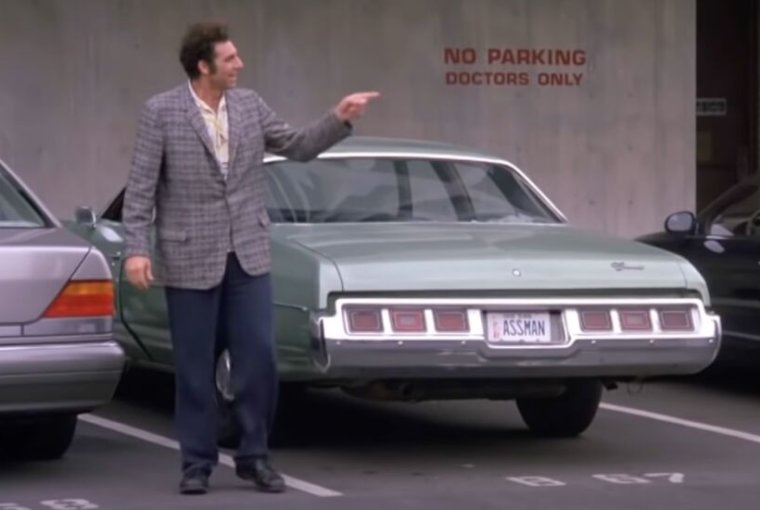
Enlarge / The state of New York says that this guy is the "assman," not me. Show him the butt ads!
Seinfeld
According to my research, everyone has a butt.
But that doesn't mean, when I'm imbibing my morning cuppa and reading up on the recent presidential debate, that I want to see an ad showing an illustrated derrière with a bar of soap clenched firmly between its two ripe cheeks.
Enlarge / The ad that finally broke me.
Yet there it was, a riotous rump residing right in the middle of a New York Times article this week, causing me to reflect on just how far the Gray Lady has stooped to pick up those ad dollars lying in the gutter.
It's not the first time this sort of thing has sullied the "paper of record." In 2022, I was forward-thinking enough to grab a screenshot of the Times helping to sell me some sort of wipe with the tagline: "When your butt doesn't smell like butt." It was also marketed as deodorant for "your pits and lady bits."
Enlarge / Would Don Draper have written "smell like butt" on one of his ads?
Not having any "lady bits" to deodorize, this was not particularly compelling, but the true high point of ass-related irrelevancy at the Times came when I was served an ad featuring a mournful-looking dog who pointed the business end of his hindquarters directly at the camera. "It's time to leave your dog's anal gland problems behind," I was told.
I have never owned a dog, nor—to my children's continuing dissatisfaction—ever will. It was therefore left to Ars Technica's Managing Editor Eric Bangeman, who is a noted canine lover and a true "friend to all creatures, even rats," to explain to me just what this baffling advertisement meant.
Enlarge / Now I really don't want a pet in the house.
Once you start looking for these oddly direct ads in self-consciously "classy" media outlets, you see them everywhere, including in The Atlantic, where a bidet ad once promised that it would make my "butt crack smile."
(Perhaps this last ad can be blamed on my boss, who has spoken in such glowing terms about high-end Japanese toilet technology that I Googled it—probably marking myself as some kind of "ass man" for life.)
Whatever the reason for seeing one of these ads, all of them looked cheap, and none of them felt relevant. I have nothing against the noble bidet, but having "holy s*** this thing's a gamechanger!!!" appear in the middle of my screen while pondering some chinstroker of an article was not exactly why I had visited The Atlantic.
Enlarge / The game, it has been changed. By this stream of water. Shooting at your butt.
The great irony of online advertising these days is that it's often claimed to be "targeted," mining our personal and demographic information to serve us the ads that we allegedly want to see. Wouldn't I prefer to view ads "relevant to my interests"? Maybe. But I can say with confidence that after two decades of being "extremely online" for work, the number of ads I have voluntarily and enthusiastically clicked upon must number in the low double digits.
Instead, the engines powering these ad networks continue to bombard me with two kinds of ads: 1) those that are wholly irrelevant to my interests and 2) those that are relevant to my interests because they display the exact product I once looked at in some online store. Ad targeting companies may "know a lot about me," but they don't know me in any truly useful way.
They don't know, for instance, why I looked at some product online, or if I already made a decision not to buy it (or to buy it elsewhere), or if I just wanted to better understand my boss's love of Japanese bidets. They don't know whether I have (or want) a dog. And they (clearly) don't know that I would be repulsed by an edible product shaped like a human ear and featuring both bite marks and Mike Tyson's name.
Enlarge / Oh, come on.
(Fortunately, you can completely opt out of ads at some sites, including Ars Technica, by subscribing for a few bucks a month—and contributing directly to our bottom line.)